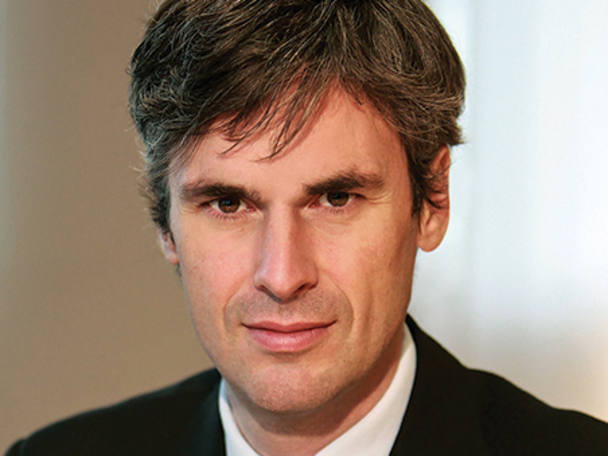After Donald Trump won the US presidential election last year, the prices of 10-year Treasuries - US government bonds - took a dramatic tumble. Their yields rose as investors anticipated an increase in inflation from greater growth and government borrowing to fund infrastructure projects. But Jim Leaviss, head of retail fixed interest at M&G, thinks talk of the demise of the 30-year developed bond bull market was premature.
"We don't know what President Trump is going to do and it remains to be seen if he gets a tax bill passed," he says. "Might the so-called bond vigilantes come back into play and punish the US government for borrowing too much? Does President Trump do tax cuts or fiscal spending? He's claimed he'll cut taxes aggressively and that will generate permanently higher levels of growth in the US. People are generally sceptical about that. Normally, it just means higher levels of government bond borrowing."
And with President Trump currently facing problems domestically because of the investigation into his administration's links with Russia, the reflation trade could be about to go into reverse.
Nevertheless, the sell-off in US Treasuries means the asset class looks attractively valued, which would even be the case if Mr Trump was impeached - although Mr Leaviss thinks that is unlikely.
He explains: "The US Treasury market remains the benchmark risk-off asset class along with the Japanese yen, so increased political risk isn't going to lead to significant selling of US Treasuries - it may even be the opposite."
And while developed market bonds remain expensive overall, it doesn't mean there aren't any opportunities, with Europe being one of the few bright spots. "Having been a disaster area for the global economy with the debt crisis of 2012, we're now seeing some growth momentum in Europe, with job growth and unemployment coming down," he says. "It's not gangbuster growth and it's still spread unevenly around the eurozone, but it's a very positive point in time for the eurozone."
Spreads on European high-yield credit have tightened since the European Central Bank (ECB) started buying corporate bonds as part of its quantitative easing (QE) programme last year. And although they tightened further in the relief rally that followed the election of Emmanuel Macron as French president, the asset class remains attractive.
"The fundamentals are extremely strong for credit - in fact, they're improving - which is a bit of a surprise for everybody at this stage of the economic cycle," says Mr Leaviss.
Although eurozone inflation is at its highest level in four years, Mr Leaviss does not think the ECB will raise interest rates any time soon. Central bankers are nervous about increasing interest rates too early and triggering another debt crisis in weaker eurozone countries. But that doesn't mean the possibility of central bankers misfiring has gone away.
"I'm surprised the ECB is saying it will withdraw QE before raising interest rates," says Mr Leaviss. "The main problems in Europe are its unprofitable banks and weak sovereigns. If you were to raise interest rates first to 0 or 0.5 per cent [from negative interest rates], for example, you would restore some profitability to the banking sector. Leaving QE in place allows countries such as Italy to continue borrowing at very low levels. But by withdrawing QE first you run the risk that peripheral bond yields start to drift higher again. Italy's debt is sustainable at the rate levels we're at now, but not at 3 to 4 per cent if we allow QE to end."
So Mr Leaviss says bond investors should prepare for a "minor taper tantrum" when the ECB stops buying Spanish and Italian bonds, and spreads widen as a result.
Politics also remains a risk. Despite president Macron's victory, the possibility of a country leaving the euro is higher now than it was during the debt crisis five years ago.
"We are not out of the woods yet: the far right, the separatists, and the people who want to leave the European Union are in the ascendancy [even] if they're not winning elections this time around," says Mr Leaviss. "This is a populist movement that remains strong and it only takes one election win somewhere in Europe over the next few years for somebody to leave the euro. In a post-Brexit world the genie is out of the bottle."
And he doesn't think the UK is going to see much upside when it leaves the European Union, particularly as increased inflation and low wage growth are squeezing consumers' disposable income.
"Bond markets are firmly in the Mark Carney camp, which [takes the view that] Brexit is damaging to UK growth," says Mr Leaviss. "The UK consumer is highly levered. UK consumers have been spending their pensions and gearing up on credit cards again, which is something we haven't seen since the financial crisis of 2007-08 - as well as on car loans. Brexit could be worse than what [the market] is pricing in."
Jim Leaviss CV
Jim Leaviss is head of retail fixed interest for M&G's mutual fund range, and manages the M&G Global Macro Bond (GB00B78PH601) and M&G European Inflation Linked Corporate Bond funds. He is deputy manager of the M&G Gilt and Fixed Interest Income (GB00B7454D07), M&G Index-Linked Bond (GB00B7875289) and M&G UK Inflation Linked Corporate Bond (GB00B44JC482) funds. He joined M&G in 1997 after five years at the Bank of England. |











